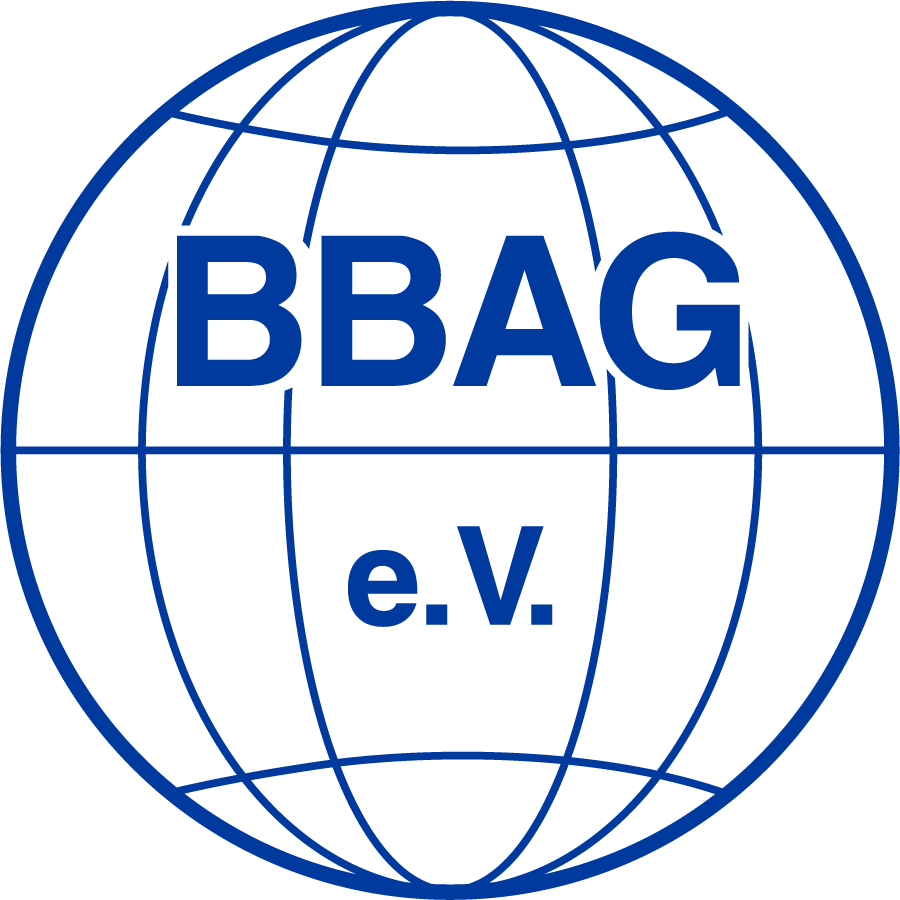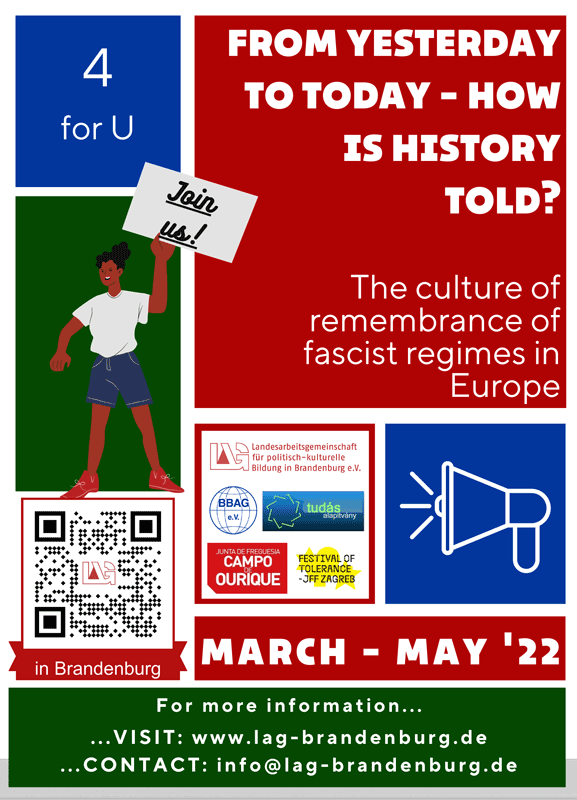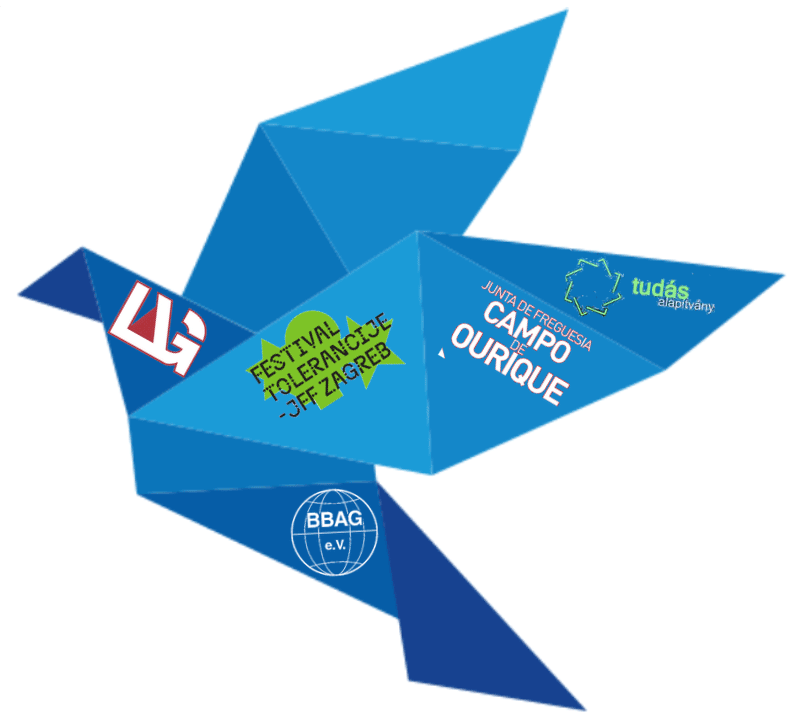Partners
Landesarbeitsgemeinschaft für politisch-kulturelle Bildung in Brandenburg e.V.
LAG e.V. / Deutschland
Berlin-Brandenburgische Auslandsgesellschaft e.V.
BBAG e.V. / Deutschland
Jüdisches Filmfestival in Zagreb / Kroatien
Tudás Alapítvány
Foundation of Knowledge, aktiv im Bereich Kunst und Kultur / Ungarn
Junta de Freguesia de Campo de Ourique
Bibliothek in Lissabon / Portugal
EU Programme
Citizens, Equality, Rights and Values Programme (CERV), Rememberance
Short description of the project
The Project „From yesterday to today – how history is told? The culture of remembrance of fascist regimes in Europe” is a way to approach the “storytelling” of different countries regarding their history. It is developed through mutual exchange and face-to face-encounters. European citizens from several countries analyze together how stories about history are communicated, what kind of images are drawn, what kind of heroes are admired or idealized and what kind of victims are mourned.
In participative workshops the specific “storytelling” of the hosting country will be explored and discussed. The purpose is to develop a comprehensive view of the “storytelling” of the hosting country. Furthermore this image, derived from “storytelling, is analysed and deconstructed in common discussions and exchange. Participants of the workshops are able to retrace, how history is told, how political and social remembrance proceeds and how the country copes with its history.
Thus, bridges can be build towards a common European culture of remembrance. History is a chance for citizens to encounter today’s presence, to analyze today’s political tendencies and current “storytelling” in politics and society.
To foster the international exchange every organization sends young people to the hosting country to participate in a two- to three-day-workshop. Europeans from four countries meet once in every country to exam the specific culture of remembrance of this country and discuss it. Thus, a network of stories and a global view of history evolve which helps to create a social link between the participants. This social link leads to a sight and a sense of Europe, of its history, presence and future. Every workshop is open for 25 participants.


